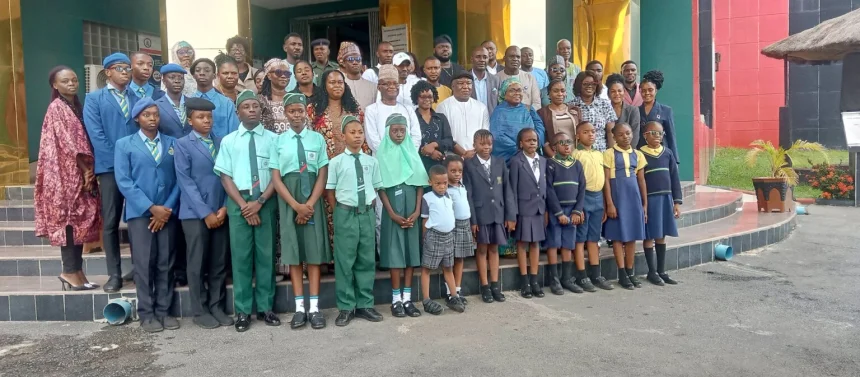The Connecting Communities and Heritages against Climate Change (CCHCC) project has reaffirmed its commitment to empowering young Nigerians for grassroots climate advocacy.
Project Lead Dr. Deborah Ayodele-Olajire made this known on Friday in Abuja during a climate change workshop and art exhibition organized by researchers from the University of Ibadan, Open University, and UK institutions.
The event, which brought together schoolchildren, lawmakers, and stakeholders, aimed to stimulate inclusive dialogue on collective climate action and the role of culture and heritage in shaping environmental responses.
Ayodele-Olajire said the CCHCC project uses “artivism”, a fusion of art and activism, to create space for dialogue between creators and audiences in promoting social change.
“As part of our core mission, we are working with diverse partners to shape policy and practice in response to climate change. It is important to ask whose voices are heard in shaping these strategies,” she said.
She explained that the project employs multilingual, multidisciplinary, multigenerational and multimodal participatory approaches to ensure inclusivity.
“The initiative engages children and young people from Nigeria, Kenya and Scotland, giving them opportunities to become climate ambassadors through creative expression and advocacy.
“Young people must be recognised as key stakeholders. They are the ones who will live with the consequences of today’s decisions. Their perspectives often provide fresh, innovative approaches to the climate crisis,” she said.
Ayodele-Olajire added that the project is a collaboration between the Open University, University of the Highlands and Islands, One World, and the YMCA African Alliance.
In his remarks, Chairman, House Committee on Environment, Mr Julius Pondi, represented by his Senior Legislative Aide, Mr Etaba Okpa, called for greater focus on rural communities in climate change efforts.
He said grassroots actors engaged in tree planting and other environmental activities should be prioritised in national climate campaigns.
“Let’s recognise the role of the downtrodden, the people who plant trees and live close to nature. Sustainable practices like reforestation and responsible resource exploration must begin with them,” he said.
Also speaking, Dr Iniobong Abiola-Awe, Director, Department of Climate Change, Federal Ministry of Environment, described climate change as one of the most pressing challenges of the present time.
Abiola-Awe, represented by Mrs Asmau Jubril, Head of the Mitigation Division, said the government is committed to supporting youth-led environmental projects, green entrepreneurship, and climate innovation.
“Young people are essential partners in climate policy design and implementation. Whether you work in afforestation, waste recycling, sustainable farming or education, your contributions are critical,” she said.
She added that government efforts are focused on implementing policies that reduce emissions, promote clean energy, and restore ecosystems through collaborative action.
“True environmental transformation demands shared responsibility and strong partnerships,” she said.
Victor Gamalion, a senior secondary student of Command Day Secondary School, Lungi Barracks, presented a climate-themed artwork during the exhibition.
“My piece shows the impact of climate change on human life. One side is yellow and polluted, representing carbon emissions and factory pollution, while the green side reflects clean air, healthy trees, and sustainability,” he said.
The high point of the event was the exhibition of artworks by pupils from primary and secondary schools across the FCT, reflecting the effects of climate change and proposed solutions.



